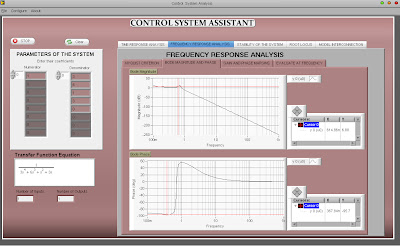FUTURE TRENDS
Engineers play a key role i
n our societal development, contributing to and enabling initiatives that drive
economic progress, enhance social and physical infrastructures, and inspire the changes that improve our
quality of life. Simultaneously, industry and manufacturing are facing unprecedented challenges due to
globalization and distributed manufacturing. As a result, the business environment of manufacturing
enterprises is characterized by continuous change and increasing complexity. The challenges for companies
arise not only from the need for flexible technical solutions, but also from managing complex socio-technical
systems, and contribute tangibly to the sustainable development of manufacturing and the environment.
Researchers and graduates with the ability to understand both complex technological processes and the
creative arts and social skills are increasingly sought after in today's industrial and business world in areas of:
Manufacturing Management,
Our capacity to understand the key trends that will shape the future of chemical engineering will determine how we need to prepare ourselves personally and professionally.
Print materials are increasingly being distributed in
electronic format (either online or CD-ROM). It
is expected that this will greatly change the nature of
the information or how it is used. Therefore, a
major emphasis in the future will be to access
instructional and laboratory components via the
Internet. The Intranet link at the university campus may
also be used to bring the real-time laboratory data into the classroom teaching
to support the theory. Furthermore, when technology-intensive teaching tools
become widely available, the traditional roles of the university lecturers will
change from
pure classroom-based teaching to one of consultation,
advice and direction giving. However, it is
believed that the technology-based course will not
eliminate the educators; instead it will change
the type of activities the educators carry out. In the
technology-based teaching/learning practice,
the major activities of the lecturers may include
preparation of the software packages, adopting
new concepts and new teaching practices, modifying
existing materials to suit the changes introduced
in the latest version of the multimedia tools, and above
all these they can spend time to continuously evaluating the teaching/learning
outcomes. As is reported in the literature, including the
Internet resources, remote experimentation is not limited
to education. In research and industry,
remote access also represents an opportunity for the
scientists and engineers who wish to share
unique and expensive equipment. Therefore, it is expected
that the collaborations between the
higher education institutions and industrial
organizations will increase and hence will provide
opportunities to share the expensive and the complex
experimental setups, training and teaching
materials across the organizations.
The robotics
laboratory reported in is a very good example of `sharing laboratory
facilities' for teaching purpose, which reduced the cost while increasing the
knowledge distribution. It is also expected that `remote experimentation' will
reduce the number of identical experimental setups used in the conventional
laboratory practice. The distinction between the traditional laboratory class
and the remote area experimenting via Internet may become absolute in many
engineering disciplines. Therefore, the Internet and/or Intranet links may bring the hazardous and dangerous
laboratory into the classroom or
learning environment. In the case of harsh and dangerous
environment laboratories the users can access the complex, large or expensive plants remotely, and
experience firsthand system behavior via the
Internet that is not possible or practical in the
traditional laboratory practices. However, some
legal issues must be solved before sharing sensitive
information between the institutions, which can
easily be solved by granting a limited access to the
external users. The technology may also be used to provide hands-on industrial
training facilities remotely for the engineering students. The potential
employers of engineering graduates may provide a real training environment to
prospective employees (UG or PG students) at the university level. Finally, as
in the `Open University' practice, the
on-line learning is more convenient and immediate for
many people. Although this practice is not widely accepted in experimental work
in engineering, the computer technology may be utilized
to store the real-time test results and the real
experiment can be imitated later for other users.



























